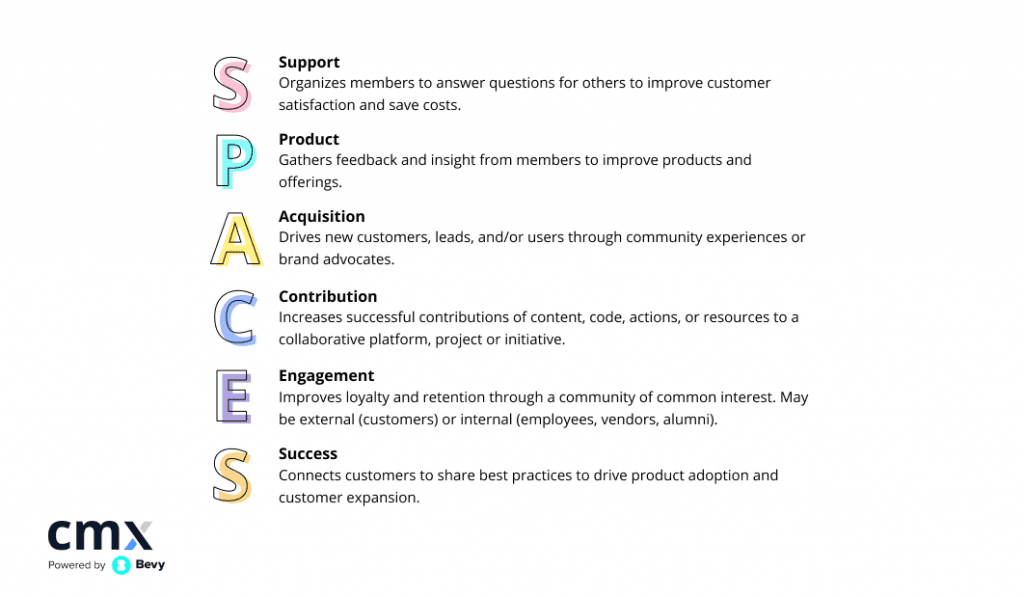We live in a constantly changing world. In today’s world, what is desired is personalized and unique products, aware that brands reshape their marketing strategies accordingly. Therefore, community management started to dominate marketing recently. It proposes a humane approach, prioritizing customers’ wishes and creating a bond with human touches in the process. The only way to create a bond is to create a community and be successful in community management. Are you looking to learn more about community management best practices?
Once you acquire the bond through successful community management you can start to enjoy the outcomes. But how is this done? In this article, you will find the different forms of community management, and specifically, the role of social media will be our focus.
What is included in community management?
Community management is the overall concept of how brands engage with their audiences on most online platforms. Generally, it covers everything from building your brand-specific community to keeping the engagement rates high throughout. Briefly, this process involves these main steps:
- Identifying your audience,
- Deciding on a vision for your community,
- Setting community guidelines,
- Creating a unique platform for your community,
- Keeping regular communication and engagement,
- Receiving feedback and making improvements,
- Setting goals and measuring progress,
- Building brand loyalty.
Let’s see these in action with an outstanding example: Starbucks!
Starbucks and Differentiation
Starbucks is an establishment designed around people’s desires. They indeed have certain menus but, in the end, you get a customized coffee. Furthermore, the fact that your name is written on a cup of coffee has significance. It demonstrates that they regard you as a unique human being distinguished from other customers. In addition, they supplement this excellent marketing strategy with the creation of a welcoming environment in which you can work for hours and socialize with others. Starbucks, in general, places the human phenomenon at the center of its marketing strategies.

We talk about the Starbucks example to understand the importance of making someone feel unique in marketing. Of course, the market, which has become much more complex since the 2000s, has included many different service areas. Information technology has developed, and digitalization has emerged as the most important factor. Naturally, there have been some transformations in marketing as well. The aforementioned human factor took the form of creating and managing the community. Therefore, those who are behind this trend are looking for the answer to the question of how to manage a community.
Different Types of Community Management
You can follow many different methods for community management. David Spinks proposes the SPACES model, which combines these methods.

Customer support in the model basically refers to helping customers when they have problems and managing the community by creating happy customers at the end of the day. Creating online forums and enabling customers to communicate with each other on discussion boards provides a more interactive space. At the same time, when customers need support, contacting a customer representative instead of an automatic message creates human touch, ensuring successful community management. At this point, complaints collected from the support section enter the system as feedback and continue on the road by becoming a product innovation. For the acquisition part, you can learn more about Membership Drive Ideas for Organizations.

For the remaining three topics, namely contribution, engagement, and success, the use of social media is very critical. So, let’s move on to the role of social media in community management.
The Role of Social Media in Community Management
Social media activities are essential to increase engagement within communities. They are part of community management best practices! With correct social media usage, you can prevent people from feeling dispatched from your community and make them feel like a part of your team. To achieve this, you need to choose the most suitable digital platform for your community. Community-based organizations generally use Facebook groups, yet there are various alternatives to Facebook groups. After you are sure of the platform, you can follow the following strategies:
1. Be accessible and a good listener
As mentioned earlier, the human factor (personalization) is the most important element of marketing strategies. So, try to really understand the person you are communicating with. You will get a lot of complaints on social media platforms, but that’s okay. Remember, giving personalized answers always makes you stand out. In addition, having a name at the end of messages gives you an edge by making people think they are being taken seriously. Learn to use social media accounts as a good feedback tool and improve yourself.

2. Create a good brand voice and make it sustainable
It is very important to establish a certain brand voice when using social media platforms. Pre-arranging many details, such as the style of the content and the frequency of posting is always a good idea. Building a strategy and sharing content that suits it creates a continuous brand voice. However, in this context, remember that each social media platform has its own dynamics. For instance, Instagram is a place where visuality is more important than anything. Therefore, it is essential to pay attention to color harmony and use aesthetic pictures. On the other hand, engagement is more important than aesthetics on Twitter. Hence, following the agenda and keeping up with the trends is a more appropriate strategy for Twitter.

Due to the difficulty of these differences, many organizations employ separate staff for social media management. Considering that social media is both a door to potential customers outside of your brand and a room where your members are constantly interacting, it will be advantageous for you to look professional in any case.
3. Create a good brand perception
Trying to be successful in the usage of social media platforms, or even being successful, does not always mean that you create the perception that you are successful. Here, too, the human factor comes into play. Someone on Twitter can damage your brand’s reputation by sharing a bad experience with your brand and getting millions of retweets. But it can also be the other way around, social media can create a huge word of mouth and you can use it to grow.
The important thing is to follow the perceptions created about your brand on social media and guide them. There are social media monitoring tools that you can use for this purpose. You can see where your brand or your competitors are included in the mentions with these tools, and you can easily follow hashtags related to your field.

4. Don’t hesitate to use your sense of humor
Another way to incorporate the human touch into the community management process is to use humor in social media accounts. Making jokes about the current agenda and teasing competitors with playful language -without making anyone offended- make many brands stand out on social media platforms. In this way, brands both increase their visibility and gain sympathy. Using humor is one of the best community management best practices!

At the same time, users want promotional products from brands in return for a certain number of likes and spread the sharing as much as possible to obtain that product. With the mutual gain created here, the brand makes free advertisements and the user gets free products/services. Therefore, instead of constantly communicating with automatic messages or using overly serious corporate language, the communication language created with the right amount of humor and sincerity helps you to highlight your brand.
What are the benefits of community management?
To sum up, community management helps you manage the perception of your brand and create brand loyalty. Community management best practices, in which the human factor plays a significant role, include:
- Learning about the needs/wants of your customers,
- Taking action accordingly to the feedback that is received through community management strategies,
- Increasing customer satisfaction by helping customers with their problems,
- Increasing engagement and sales with social media strategies,
- And more!
Raklet for Better Community Management

Did you know Raklet has a great platform to engage with your community in a meaningful and digital way?
It is possible with Raklet to collect and easily manage the information of all your members on one platform. Providing fast communication with your members via email or SMS, Raklet also has a post-sharing feature in a private social network. In addition, you can create a real community by designing discussion boards or organizing events and selling tickets for the engagement of the members. You can try all of these for yourself by launching your own free platform, and you can upgrade your membership by choosing different membership plans according to your needs. If you want to take it one step further, don’t forget to check out our website.
If you’d like to learn more about community software, check out these articles below:








